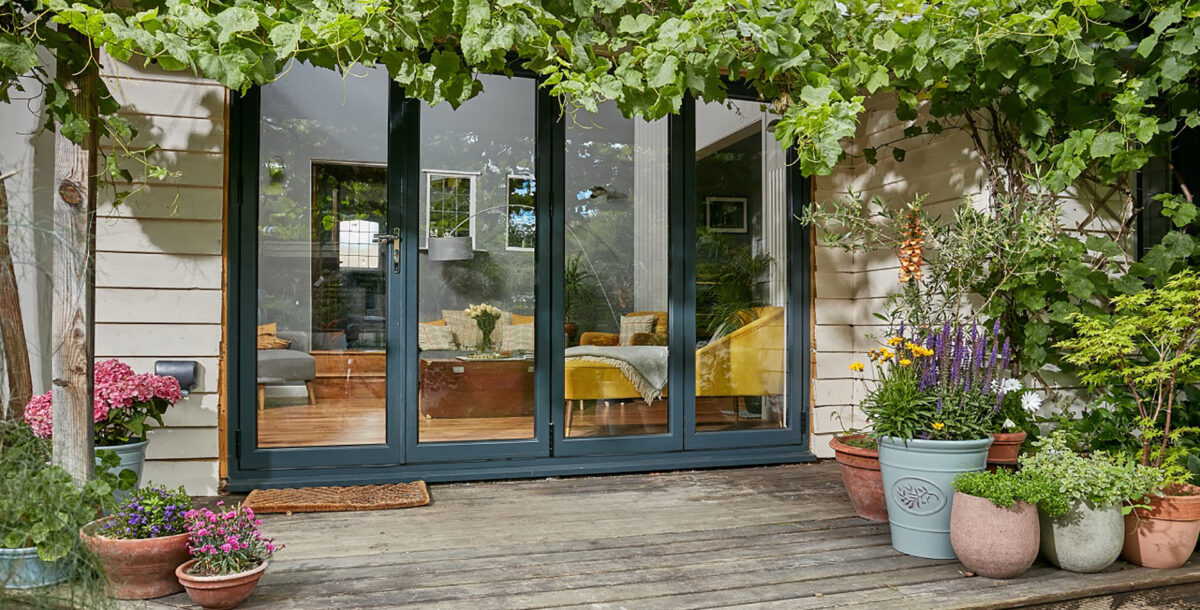Adapting to climate change: how well are we doing?
A report from the UK Green Building Council emphasises the need for the UK government and construction sector to redouble efforts if the country is to meet the challenges of climate change.
The UK Government’s Third National Adaption Strategy was published in 2023, setting out plans for how the country will adapt to the impacts of climate change, and improve our national resilience. It looks at the kind of adaptations we should be making in the following policy areas over the next five years: infrastructure; natural environment; health, communities, and the built environment; business and industry; international dimensions; working with local government and the devolved nations.
Adaption to possible future climate change often seems to get overlooked as we focus on energy efficiency and life-cycle carbon assessment, but this document sets out what the Department for Environment, Food and Rural Affairs (Defra) and other government teams are doing to plan for more extreme weather.

Image credit: Howard Lake CC
UK Green Building Council verdict
The UK Green Building Council UKGBC, a construction-industry membership body that campaigns for greater sustainability within the sector, has given its verdict on those parts of the strategy that apply to house building. It rates the Government’s progress in its new NAP3 Policy Scorecard, which offers us a good snapshot of key issues in climate-change adaption within UK house building today.
Key takeaways from the UKGBC report include:
- concern over climate-change-related overheating in existing housing stock. The Council advocates for a retrofit programme focussed on passive cooling
- concern over a lack of flood-prevention policy: “Key areas such as Building Regulations and retrofit have no comprehensive proposals [on flooding]. Meanwhile, planning policy, although improving, remains beset with loopholes.”
- the need for policies to address wildfires and extreme winds.
On the plus side, UKGBC welcomes several policy initiatives:
- plans for a new UK Resilience Academy to provide training in resilience,
- plans for mandatory water-efficiency labels for water fixtures and fittings,
- the review, within Defra’s Plan for Water, of whether water scarcity and efficiency information should be included in Energy Performance Certificates (EPCs).

Image credit: Pexels Nithin PA
Adapting to climate change
Additional adaption policies UKGBC would like to see put in place include:
- Water-efficiency retrofit of older housing stock, and the inclusion of water efficiency in the Decent Homes Standard, which sets minimum standards for social housing and looks likely to be extended to the private-rented sector as part of a current review
- Part C of Building Regulations to require all properties at risk of flooding to include property flood-resilience measures, prioritising nature-based solutions, specified and installed in accordance with the CIRIA Code of Practice for property
- greater powers given to Catchment Partnerships to mitigate flood risk
- 95 litres per person per day (lpppd) water-use standard in the Future Homes Standard (2025) tightened over time to 75 lpppd by 2030, as per the RIBA 2030 Climate Challenge
- a national retrofit strategy,
- clear legal duty to align the planning system with the Climate Change Act, including its obligations on adaptation
- an environmental-net-gain approach in the planning system
- local planning authorities to be required to set tree canopy cover targets of 25%,
- Part O Overheating Building Regulations extended to cover new non- domestic buildings and extensions to existing buildings
- surface water flood risk included in the digital Flood Map for Planning
- Flood Performance Certificates covering flood risk and resilience factors for retrofit and new build.
If all these were implemented, of course, that would amount to a significant volume of new regulation. But the report certainly gives some clues as to the direction of travel for future climate-change adaption policy within the sector.
As its own contribution to policy, UKGBC is developing a Resilience Roadmap that aims to pave the way towards a climate-resilient built environment by 2050. This follows on from the organisation’s influential Net Zero Whole Life Carbon Roadmap: A Pathway to Net Zero for the UK Built Environment, of 2021.









